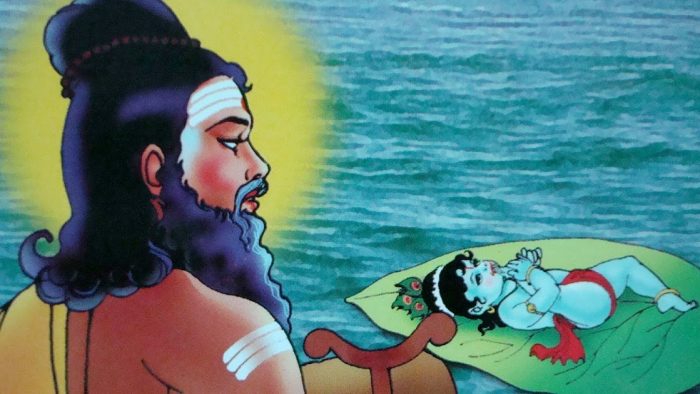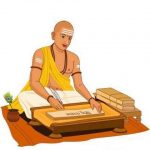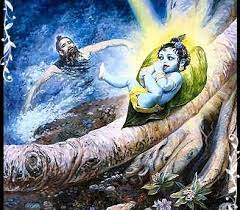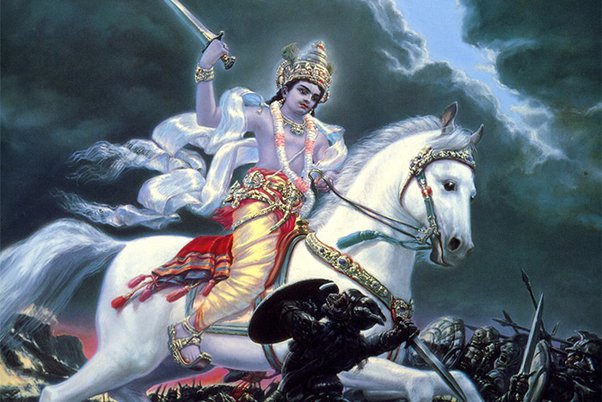“Śrī Śaunaka was confused about the extraordinarily long life span of Śrī Mārkaṇḍeya, who had taken birth in Śaunaka’s own dynasty yet who had moved about alone in the ocean of devastation millions of years previously and seen a wonderful young child lying upon a banyan leaf. It seemed to Śaunaka that Mārkaṇḍeya had lived through two days of Brahmā, and he asked Śrī Sūta Gosvāmī to explain this.
Suta Gosvāmī replied that the sage Mārkaṇḍeya, after receiving the purificatory ritual of brahminical initiation from his father, had fixed himself in the vow of lifelong celibacy. He then worshiped the Supreme Lord Hari for six lifetimes of Manu. In the seventh manvantara, Lord Indra sent Kāmadeva (Cupid) and his associates to interrupt the sage’s austerities. But Mārkaṇḍeya Ṛṣi defeated them by the potency generated from his penance.
Then, to show mercy to Mārkaṇḍeya, Lord Śrī Hari appeared before him in the form of Nara-Nārāyaṇa. Śrī Mārkaṇḍeya prostrated himself in obeisance and then worshiped the Lords by offering Them comfortable seats, water for washing Their feet, and other respectful presentations.
Authorities say that Mārkaṇḍeya Ṛṣi, the son of Mṛkaṇḍu, was an exceptionally long-lived sage who was the only survivor at the end of Brahmā’s day, when the entire universe was merged in the flood of annihilation. But this same Mārkaṇḍeya Ṛṣi, the foremost descendant of Bhṛgu, took birth in my own family during the current day of Brahmā, and we have not yet seen any total annihilation in this day of Brahmā. Also, it is well known that Mārkaṇḍeya, while wandering helplessly in the great ocean of annihilation, saw in those fearful waters a wonderful personality — an infant boy lying alone within the fold of a banyan leaf. Lord Brahmā’s day, consisting of his 12 hours, lasts 4 billion 320 million years, and his night is of the same duration. Apparently Mārkaṇḍeya lived throughout one such day and night and in the following day of Brahmā continued living as the same Mārkaṇḍeya. It seems that when annihilation occurred during Brahmā’s night, the sage wandered throughout the fearful waters of destruction and saw within those waters an extraordinary personality lying on a banyan leaf.”
Source: A.C. Bhaktivedanta Swami Prabhupada (2014 edition), “Srimad Bhagavatam”, Twelth Canto, Chapter 08 – Introduction, Text 2-5.





















Leave A Comment